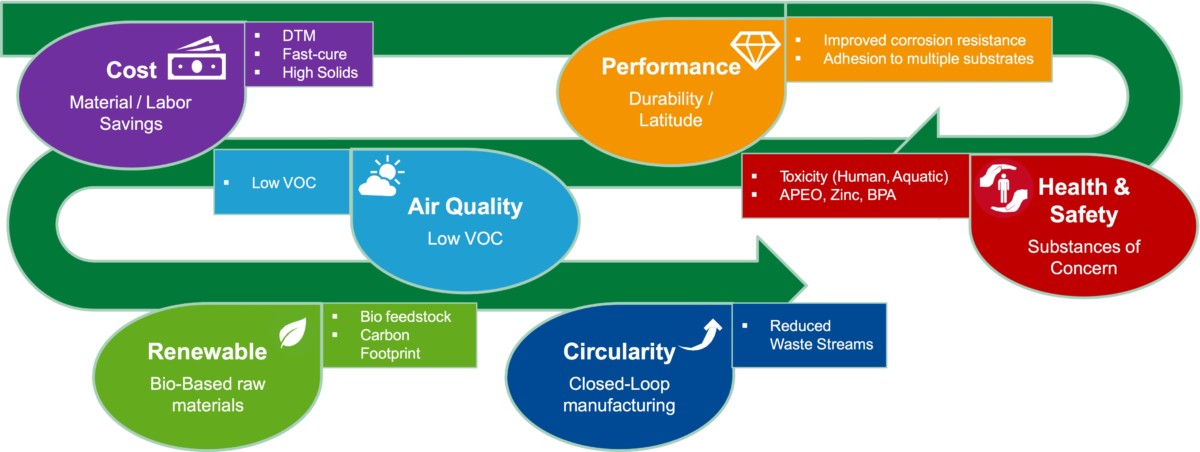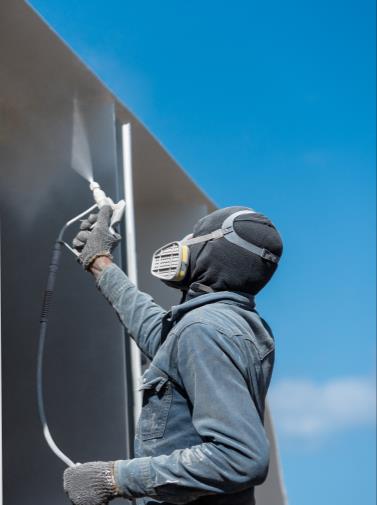
Societies, international organizations, governments and the international business community are increasingly aware of the need to take action to balance economic, environmental and social interests. In 2010 alone, the world’s population consumed 1.5 times the renewable capacity of our planet. If the trend continues, we will need resources equivalent to three Earths to meet demands by 20501.
Coating innovation and technology have been driven for decades by companies achieving better performance and economics of their products, while adhering to regulations that are aimed at reducing the impact on human health and the environment. Essentially, industrial coating companies have already been walking the path towards sustainability, and it has been the job description of every formulator in the country. So, what has changed?
The knowledge about- and the sentiment towards- achieving global environmental sustainability have been elevated from a concerned approach to an urgent matter. We are seeing sustainability be redefined with new targets such as the UN’s 17 Sustainable Development Goals (SDG), and large corporate companies stating that they will reach “Net Zero”. The demands are high and the innovation race to reach sustainability is on. Are your products ready?
Industrial Coatings Sustainability Roadmap
The good news is that competitive coating manufacturers in operation today have already been walking the path towards sustainability, but it’s time to pick-up the pace! BASF® Dispersions, Resins, and Additives, shared the categories they see the industrial coating market focusing on. What does your sustainability roadmap look like?

The Azelis CASE in-house experts and knowledgeable representatives are equipped to help you with any of your goals along this path.
Check out these ideas to tackle your renewable raw material goals with these bio-based products from BASF®.
Thickening agents made with naturally-sourced castor oil
Efka® RM 1900 and 1920
Rheology modifiers ensure the right thickness and coating smoothness, allowing for a lower usage of paint with an increased lifespan.

Efka® RM 1900 and 1920 can be used in most non-aqueous paints and coatings to add a thixotropic affect. Sagging of thick films on vertical surfaces is effectively prevented whilst the working and flow properties are also generally improved. Pigment settling is also substantially reduced. The lower the polarity of the coating, the better the performance. High temperature stable.
Sustainability Highlights
- VOC-free – EU 2004/24
- Naturally sourced castor oil
Natural polyols for 2-pack polyurethanes
SOVERMOL® 1092
Combines hydrolysis stability of polyethers with hydrophobic properties of polyesters
Sovermol® natural-oil polyols are polyfunctional alcohols based on renewable raw materials like rapeseed oil, castor oil, soybean oil and palm kernel oil. The practical advantages of these products include good adhesion, excellent workability and good weathering properties. They can also be used on a wide variety of different substrates.
Sovermol 1092 High performance polyol for coatings, puttys and adhesives
- Low viscosity
- High filler content possible
- Easy to apply
- Extreme hardness performance
- Long gel time with fast Shore D development
Extreme hydrophobic properties
What is Sustainable Solution Steering from BASF?
No general standard is currently in place for assessing a product’s contribution to sustainability in the paint and coatings industry. In response, BASF has developed the Sustainable Solution Steering methodology. It establishes clear evaluation criteria and process steps including roles and responsibilities in an internal set of guidelines.
https://youtu.be/CGaagt5hptU
Have Questions? We’re here to help!




